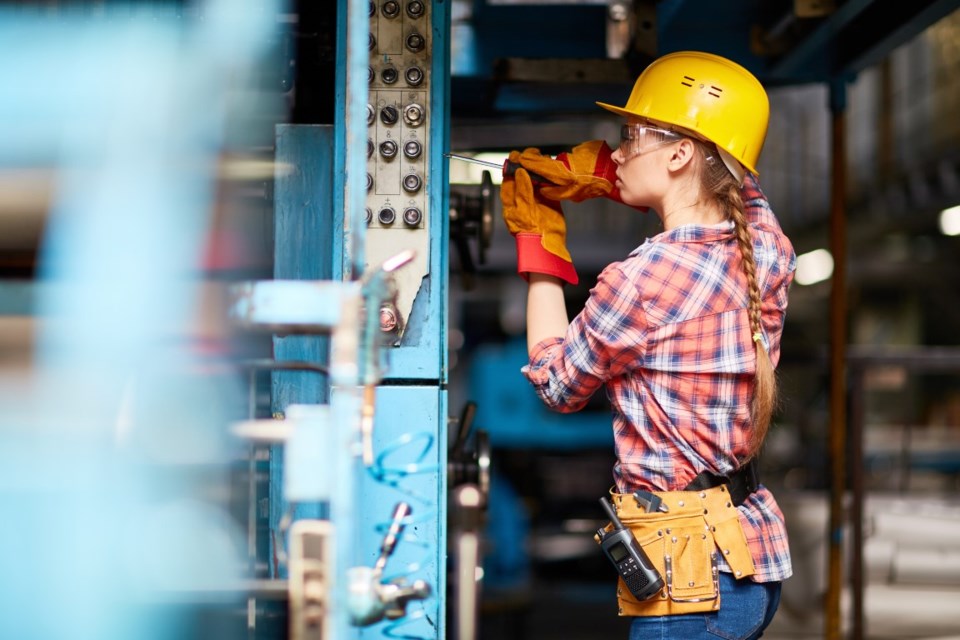Hundreds of people who pull wrenches for a living have a unique point of view on Ottawa’s new luxury tax.
Most of us might not be too bothered by a tax on super cars and private jets and even the rich might not lose much sleep over paying a bit more for a yacht or buying it in Florida if that saves a few bucks.
But there are hundreds of folks who care deeply. They don’t buy fancy cars, big boats or private jets. They build them. And they’ll be the ones hurt most by Prime Minister Justin Trudeau’s new luxury tax on cars and plans valued over $100,000 and boats valued over $250,000, which came into effect Sept. 1.
With its preoccupation with going after the rich, Ottawa is forgetting about the Canadian workers who will get caught in the crossfire. The United States made this mistake three decades ago and American workers paid dearly.
In 1991, then Republican president George H. W. Bush broke his “read my lips” vow of “no new taxes” when he imposed luxury taxes on boats, expensive cars, planes, jewelry and furs.
The tax cost 25,000 boat builders their job. Additionally, “75,000 more jobs were lost in companies that supplied yacht parts and material,” according to economist Walter Williams. The tax also cost 330 jobs in jewelry manufacturing and 1,470 in the aircraft industry.
The luxury tax sent so many Americans to the ranks of the unemployed that only two years after Bush Sr. imposed the tax, Democratic president Bill Clinton repealed all but the luxury car tax in 1993. The tax on cars was fully phased out by 2003.
“We thought we were doing the right thing,” said former Democratic senator John Breaux. “No one expected that the impact of that tax would have such a devastating impact.”
The Boston Herald encapsulated the flaw in the plan: “Soak the rich may be a great slogan to spray paint on one’s skateboard, but someone has to manufacture, sell and provide the goods that would inevitably go unpurchased when said rich are duly soaked.”
There’s already evidence showing the luxury tax will inflict similar pain on Canadian workers.
Canada’s aerospace industries association warns Trudeau’s luxury tax “will not achieve the desired purpose of taxing the wealthiest but will instead have a dramatic, negative impact on Canadian manufacturing and on Canadian jobs.” At least 900 jobs will be lost, to Canada’s marine manufacturers association.
The Parliamentary Budget Officer projects the luxury tax reducing the sales of boats, planes and cars by $2.9 billion. Guess who takes it on the chin when sales drop by $2.9 billion? Workers who are no longer needed to build and service as many boats, cars or planes.
Presumably, the objective of the luxury tax is more than just punishing Canadians who can afford a boat. But when it comes to addressing the government’s $1-trillion debt, the luxury tax is silly political posturing.
The PBO project the tax bringing in $87 million this year. That’s a fraction of the $295 million the Trudeau government announced for the Ford Motor Company, $42 million for Honda, $373 million for Bombardier, $110 million for Toyota, $5.9 billion for Air Canada, $700 million for Transat, $271 million for Porter Airlines or the $440 million for the aerospace sector.
Trudeau’s deficit spending would burn through that $87 million in less than a day and the entire luxury tax revenue over the next five years accounts for half of a per cent of budgeted deficit spending. That’s assuming the feds bring in all that money. American luxury taxes raised “$97 million less in their first year than had been projected – for the simple reason that people were buying a lot fewer of these goods,” to the Wall Street Journal.
Trudeau could erase the deficit within a few years by bringing spending back to the all-time high levels before the pandemic. The government could make its spending fair for everyday Canadians by cutting off corporate welfare instead of imposing luxury taxes that will ultimately fall on the workers who lose their job.
Franco Terrazzano is the Federal Director of the Canadian Taxpayers Federation




